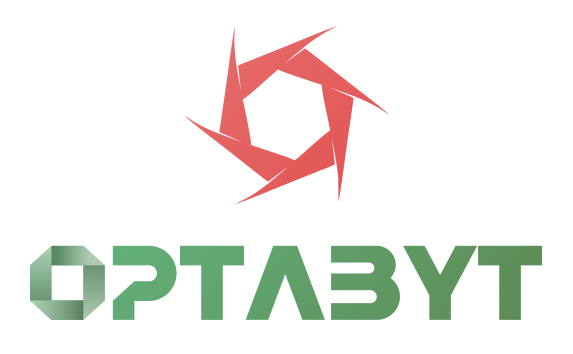
Table of Contents
ToggleManaging Project Managers: Strategies, Challenges, and Best Practices
Table of Contents
In today’s complex business landscape, project success does not solely depend on technical expertise or resources. A critical factor is managing project managers—the leaders who oversee multiple projects, align them with organizational goals, and drive collaboration across teams. Effective management of project managers requires a blend of leadership, strategic alignment, performance monitoring, and stakeholder communication. This article explores the role, challenges, and best practices for managing project managers while aligning with search intent, keyword clusters, and user expectations.
Why Managing Project Managers Matters
Organizations often run multiple projects simultaneously. Each project manager brings unique leadership skills, industry expertise, and communication styles. However, without proper oversight, projects may face delays, budget overruns, or conflicting priorities.
Managing project managers ensures:
Alignment of projects with organizational strategy
Standardization of processes and methodologies
Balanced resource allocation
Consistent quality in project delivery
Development of leadership and decision-making skills
Ultimately, managing project managers strengthens governance and creates a culture of accountability.
Key Responsibilities When Managing Project Managers
Strategic Alignment
Ensuring every project manager’s efforts contribute to long-term organizational goals.Performance Monitoring
Evaluating project timelines, budgets, and outcomes while identifying improvement areas.Resource Optimization
Distributing skilled teams and tools fairly across different projects.Leadership Development
Coaching project managers to enhance leadership, risk management, and stakeholder engagement skills.Conflict Resolution
Managing cross-functional issues and prioritization conflicts between projects.Standardization of Practices
Implementing consistent methodologies like Agile, PRINCE2, or PMI standards across all teams.
Challenges in Managing Project Managers
While managing project managers is crucial, it comes with unique challenges:
Different Leadership Styles – Some project managers may adopt strict methodologies, while others prefer flexible approaches.
Conflicting Priorities – Multiple projects competing for the same resources or deadlines.
Communication Gaps – Lack of transparency across teams may hinder collaboration.
Resistance to Change – Senior project managers may be reluctant to adopt new tools or methodologies.
Measuring Success – Defining clear KPIs to evaluate performance beyond project completion.
Best Practices for Managing Project Managers
Foster Open Communication
Regular check-ins, transparent reporting, and feedback sessions help in creating trust and clarity.
Implement a Governance Framework
Establish structured processes, policies, and metrics to ensure consistency across projects.
Develop Leadership Skills
Encourage training in emotional intelligence, stakeholder management, and conflict resolution.
Use Project Portfolio Management (PPM) Tools
Leverage tools like Microsoft Project, Jira, or Asana to track multiple projects in real time.
Align Projects with Business Strategy
Every project manager should understand the organizational vision and how their project contributes to it.
Balance Autonomy and Oversight
Allow project managers the independence to lead their teams while maintaining accountability through periodic reviews.
Technology in Managing Project Managers
Technology plays a central role in streamlining management:
AI-Powered Analytics – Predict risks and performance issues.
Collaboration Platforms – Tools like Slack, Teams, and Trello ensure smooth communication.
Cloud Solutions – Allow access to data and reports from anywhere.
Dashboards & Reports – Provide real-time insights into progress, budgets, and bottlenecks.
The Role of Emotional Intelligence
Beyond technical skills, managing project managers requires emotional intelligence. Leaders must demonstrate empathy, active listening, and adaptability to motivate managers and navigate conflicts effectively.
Training and Development for Project Managers
A strong development framework ensures project managers stay updated:
Workshops on Agile and Hybrid Methods
Certifications like PMP, PRINCE2, or Scrum Master
Soft Skills Training for Communication and Leadership
Mentorship Programs for Continuous Growth
Future Trends in Managing Project Managers
AI-driven decision-making in project monitoring
Hybrid methodologies combining Agile and traditional frameworks
Remote project management becoming the norm
Data-driven leadership for better predictions and reporting
Sustainability in project delivery aligning with ESG goals
FAQs on Managing Project Managers
1. What does managing project managers mean?
It involves supervising multiple project managers to align projects with organizational goals.
2. Why is managing project managers important?
It ensures consistency, efficiency, and strategic alignment across projects.
3. What skills are needed to manage project managers?
Leadership, communication, conflict resolution, and strategic planning.
4. How do you measure a project manager’s performance?
By assessing KPIs like timelines, budget adherence, and stakeholder satisfaction.
5. What are the main challenges in managing project managers?
Conflicting priorities, resistance to change, and communication gaps.
6. Which tools help in managing project managers?
PPM tools like Microsoft Project, Jira, and Asana.
7. How does emotional intelligence help in managing project managers?
It fosters empathy, trust, and better conflict resolution.
8. What role does governance play?
Governance frameworks ensure standardization and accountability.
9. Can Agile and traditional methods work together?
Yes, hybrid models combine flexibility with structure.
10. What is the future of managing project managers?
AI integration, remote management, and sustainability-driven approaches.
Conclusion
Effectively managing project managers requires a mix of leadership, governance, and strategic oversight. Organizations that master this approach benefit from improved project delivery, stronger alignment with business goals, and enhanced collaboration. By combining technology, emotional intelligence, and structured frameworks, businesses can ensure long-term project success.
If you’d like to explore expert guidance on managing project managers, visit@ Optabyt.com
